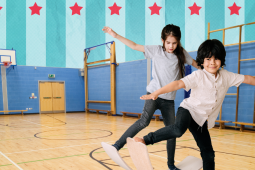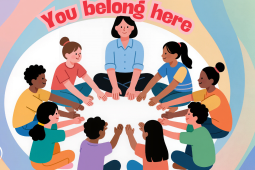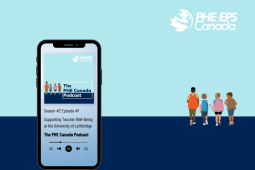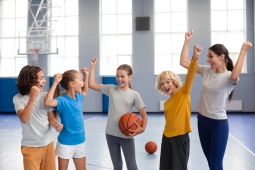Share2Care 2018 : Q&A with New Germany Rural High School

Share2Care is a mental health activation initiative gathering promising practices from across the country to share and inspire others to take action in their class and/or school community. As part of the PHE Canada Teach Resiliency program, Share2Care aims to recognize and share unique, innovative, and promising mental health practices that are making positive impacts on students, school staff, or both.
PHE Canada will share the success stories of the five school initiatives and others on the PHE Canada blog.
Promising Practice - Free Store
New Germany Rural High School is a small school housing 330 students in grades 7-12. The school is located in New Germany, Nova Scotia.
PHE Canada: what inspired the mental health initiative?
One in five students in our county lives in poverty and comes to school without proper nourishment or clothing. The impact of this on children's education is immeasurable and it further disadvantages families creating a cycle of health, mental health, and financial hardships in our community. Through the creation of a free store concept in both schools, the schools can now meet the immediate needs of the students and their families to help alleviate some of the stressors that might be felt at home.
PHE Canada: What activities were offered in this initiative?
The fundamental idea around the Free Store is the ability to respond in a timely fashion - often the same day. This means that students can take what they need home with them on the bus or families can come to the schools themselves to browse the racks and shelves at the school(s). Allowing families and students access to the school allows them to obtain the items they need throughout the school day.
Schools are quickly becoming the epicentre for students and their families. So many services are accessed through school and this is one more piece that helps to foster a healthy and happy school community. A relationship has already been created and it is one built on trust amongst school staff. Parents and guardians come to the schools for a variety of reasons:
- meeting with teachers
- school concerts
- special services
- sporting events
- drama productions
The families are often comfortable in school settings and that makes receiving the help less of a challenge. The Free Store is proving that it is making a difference in the lives of the students every day through its uptake.
PHE Canada: What are the learnings from your initiatives?
Having a private place for students and families to access the items needed seems to be important as evident through increased usage especially at the junior and senior high school level.
Furthermore, the range of items needed by families has been an eye-opener - laundry detergent along with diapers, wipes and body wash are popular items. Boys clothes are also quick to go. Expanding with a "Needs Board" to post what families might need in terms of furniture is next on the list. The more we know, the better we can respond.
PHE Canada: What is the overall impact of your initiatives?

Families have come to rely on the clothing exchange at the elementary school especially around winter clothing items such as snowsuits and boots which can be quite costly. At the high school, food and clothing items are going home with a number of students regularly. In both locations, staff assist with the students' selections.
PHE Canada: How are your initiatives or promising practices sustainable?
The Free Store will take the commitment of the two schools, private community donations alongside other funding agencies and corporate partners to achieve sustainability. The Free Store is proving that it is making a difference in the lives of our students’ every day. School is designed to focus on learning and achievement, but if when we take a broader view, we can focus on a number of the determinants of health to create a stronger community thus improving mental health for our students.
PHE Canada: Can you highlight the inclusivity of your initiatives?
The store is confidential and has a far-reaching impact. Our schools are diverse and provide an inclusive environment at the core of all our programming. The store is an extension of this and serves students and families of all situations and backgrounds.








